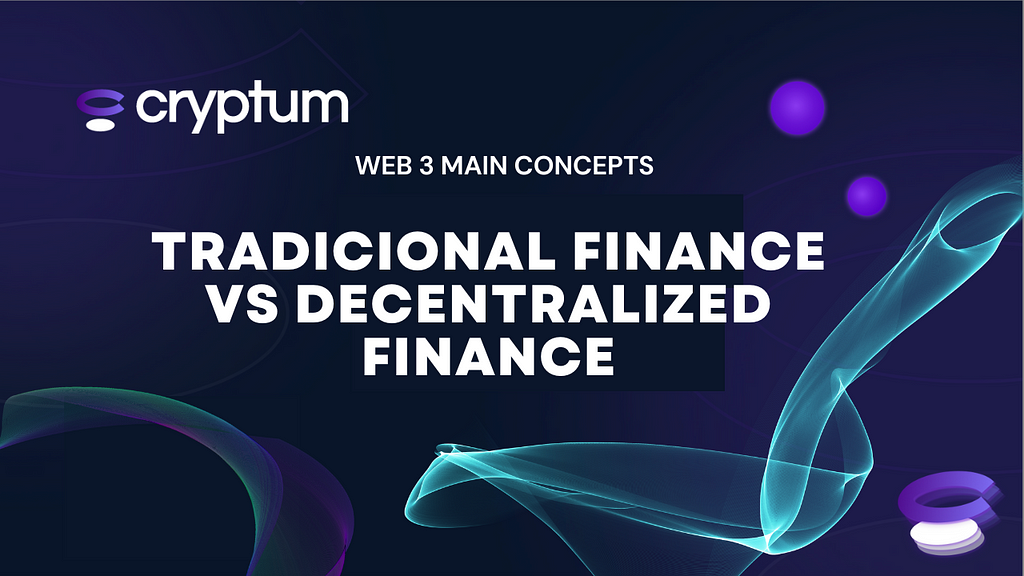Traditional Finance vs Decentralized Finance — Cryptum Web 3 Main Concepts

One of the most important topics we are often asked to discuss is the differences between traditional finance and DeFi. While both finance systems are designed to handle money, they operate in very different ways, with DeFi offering some unique benefits that traditional finance simply cannot match. So, let’s dive into the differences between these two systems in more detail!
Traditional Finance
Traditional finance has been around for centuries, and it is the system most people are familiar with. It is a centralized system, which means that financial institutions such as banks, credit unions, and other financial institutions control the flow of money. These institutions also control the information and data associated with that money, including transactions, balances, and more.
One of the biggest benefits of traditional finance is its stability. These institutions are heavily regulated, which helps to ensure that they operate within the confines of the law and remain financially stable. Additionally, traditional finance offers a range of financial products and services, including loans, savings accounts, credit cards, and more.
However, traditional finance also has some downsides. For example, it can be slow and inefficient, with many transactions taking several days to process. Additionally, traditional finance often has high fees and charges, which can eat into your savings or investment returns. Lastly, traditional finance can be exclusive, with many financial products and services only available to those with a high net worth or credit score.
Decentralized Finance
Decentralized finance (DeFi) is a relatively new system that operates using blockchain technology. Unlike traditional finance, DeFi is a decentralized system, which means that it is not controlled by any single entity or institution. Instead, it is made up of a network of computers that are connected to the blockchain and can be accessed by anyone.
One of the most significant benefits of DeFi is its speed and efficiency. Transactions can be processed in just a few seconds, with no need for intermediaries like banks. Additionally, DeFi is open and accessible to anyone, regardless of their net worth or credit score.
Another major benefit of DeFi is its transparency. Because all transactions are recorded on the blockchain, they are visible to anyone, at any time. This helps to reduce fraud and increase trust in the system.
However, DeFi is not without its drawbacks. For example, it is still a relatively new system, which means that it is not yet as stable as traditional finance. Additionally, it can be difficult for non-technical users to navigate, as it requires some understanding of blockchain technology.
Final thoughts
While traditional finance and DeFi both handle money, they operate in very different ways. Traditional finance is centralized and regulated, while DeFi is decentralized and operates using blockchain technology. While both systems have their pros and cons, DeFi offers some unique benefits, including speed, efficiency, accessibility, and transparency. As DeFi continues to evolve and mature, it has the potential to become a powerful force in the world of finance, offering new and innovative ways for people to manage and grow their money.